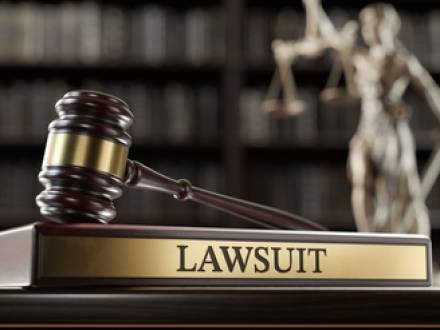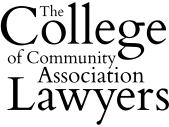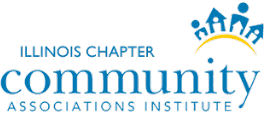 Polish,
Polish,  Ukrainian,
Ukrainian,  Russian,
Russian,  Hindi,
Hindi,  Spanish,
Spanish,  French and
French and  Greek.
Greek.
Can Illinois Condo Boards Be Sued for Underfunded Reserves?
 Illinois condominium associations must maintain financially healthy reserves, both for future repairs and for the legal protection of the board itself. When condo owners are told they must pay for a repair because there are insufficient reserves, the board should expect pushback. When reserve funds are underfunded, owners may begin pointing fingers at board members for mismanagement or breach of fiduciary duty. The question then arises regarding whether an underfunded reserve account is sufficient to trigger legal exposure for the board.
Illinois condominium associations must maintain financially healthy reserves, both for future repairs and for the legal protection of the board itself. When condo owners are told they must pay for a repair because there are insufficient reserves, the board should expect pushback. When reserve funds are underfunded, owners may begin pointing fingers at board members for mismanagement or breach of fiduciary duty. The question then arises regarding whether an underfunded reserve account is sufficient to trigger legal exposure for the board.
The answer to that question likely depends on how and why the shortfall occurred. Condominium and HOA boards have rules and laws they must abide by, but even when everything is done correctly, a lawsuit can still occur. If your board is being sued or has questions regarding reserves, speaking to an experienced Cook County, IL condominium law attorney can help you understand your obligations.
What Are Condominium Reserve Requirements Under Illinois Law?
Under the Illinois Condominium Property Act (765 ILCS 605/9(c)(2)), minimum reserve and budgeting obligations for associations are discussed. All condominium associations must establish and maintain a reasonable reserve account for future capital expenditures and deferred maintenance. Budgets must include reasonable reserves, and the board must consider the financial impact on owners and the association’s ability to obtain financing.
While a reserve study is not mandated, it is considered good practice. In some cases, failing to conduct a reserve study can imply fiduciary negligence. Reserve contributions must be disclosed to unit owners. For condominiums created after November 1, 2004, an initial statutory reserve account must be established along with the determination of the annual assessment. Associations must budget for future repairs and replacements, in addition to day-to-day operating expenses.
What Are the Fiduciary Duties of Condominium Board Members?
Board members have a fiduciary duty that includes loyalty, care, and good faith toward the associations. In some cases, poor business judgment by the board can constitute a breach of fiduciary duty. The Business Judgment Rule protects condominium directors from personal liability for decisions made with reasonable care and in good faith, with the honest belief that the action was in the best interest of the association. If a director acts with fraud, outside the authority granted by the governing documents, or with a conflict of interest, this presumption is overcome.
What Are the Differences Between Personal Liability and Association Liability?
If there is financial mismanagement, a breach of fiduciary duty, or failure to disclose financial instability, negligence, or fraud, litigation may be possible, either against the association entity or, in some cases, against individual board members.
Directors and Officers insurance coverage typically covers many instances of litigation; however, there are usually exclusions for willful or reckless conduct. Board members could potentially lose their immunity if they are found to be engaging in self-dealing, disregarding professional advice, or falsifying budgets. While courts are reluctant to impose personal liability, they are not entirely unwilling to do so.
How Reserve-Based Liability Can Be Prevented
Associations must conduct periodic reserve studies and ensure funding plans are transparent. Independent engineers and accountants must be used to validate reserve estimates, and any shortfalls must be disclosed in annual budgets and meeting minutes. Owners should be educated on long-term maintenance costs to avoid "shock assessments." Owners have the right to inspect financial records, and proactive communication between the board and owners can help reduce the risk of litigation.
Contact an Arlington Heights, IL Condominium Board Lawyer
If your Illinois condominium board is struggling to maintain adequate reserves or facing owner pushback because of special assessments, early legal guidance can prevent expensive litigation later on. An experienced Cook County, IL condo law attorney from Dickler, Kahn, Slowikowski & Zavell, Ltd. can help evaluate reserve study compliance, insurance coverage, and fiduciary exposure to protect the board members and the association. Our attorneys have over 150 years of combined legal experience. Call 847-593-5595 to schedule your initial attorney meeting.















